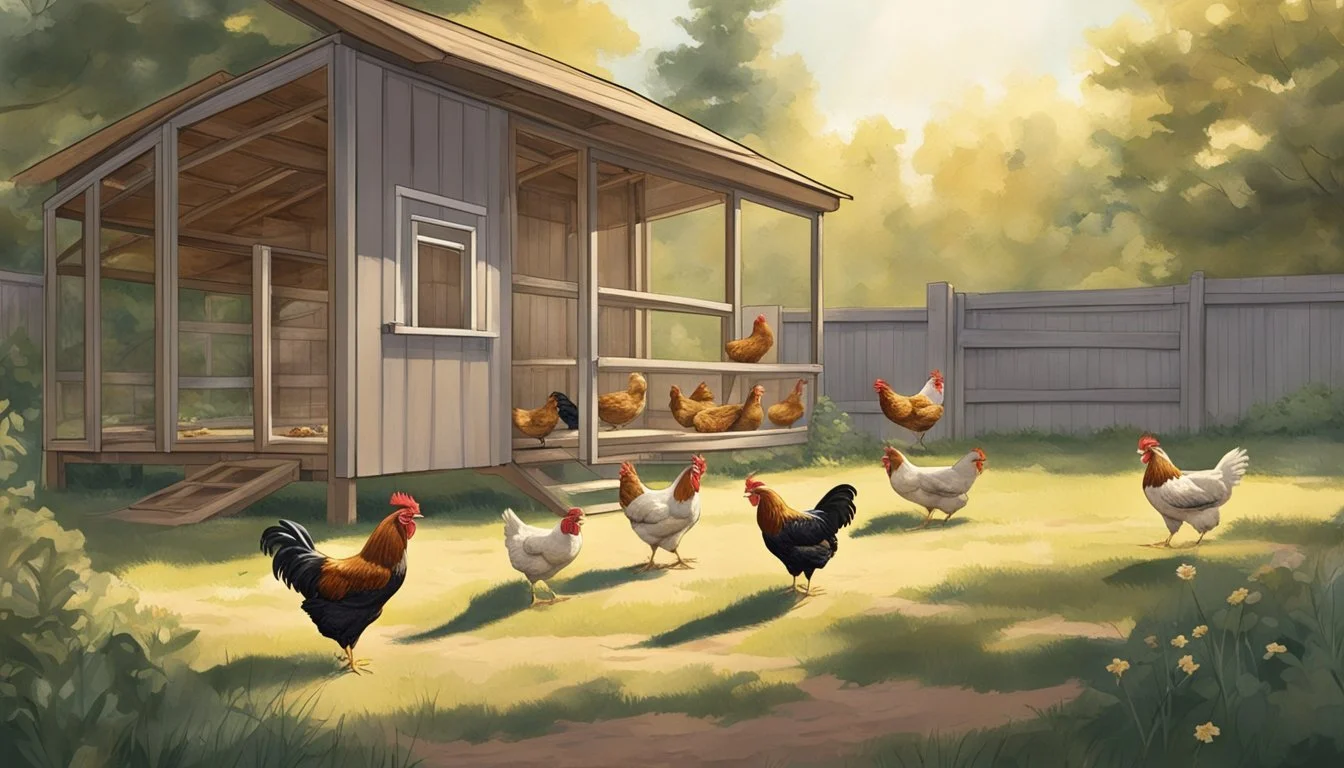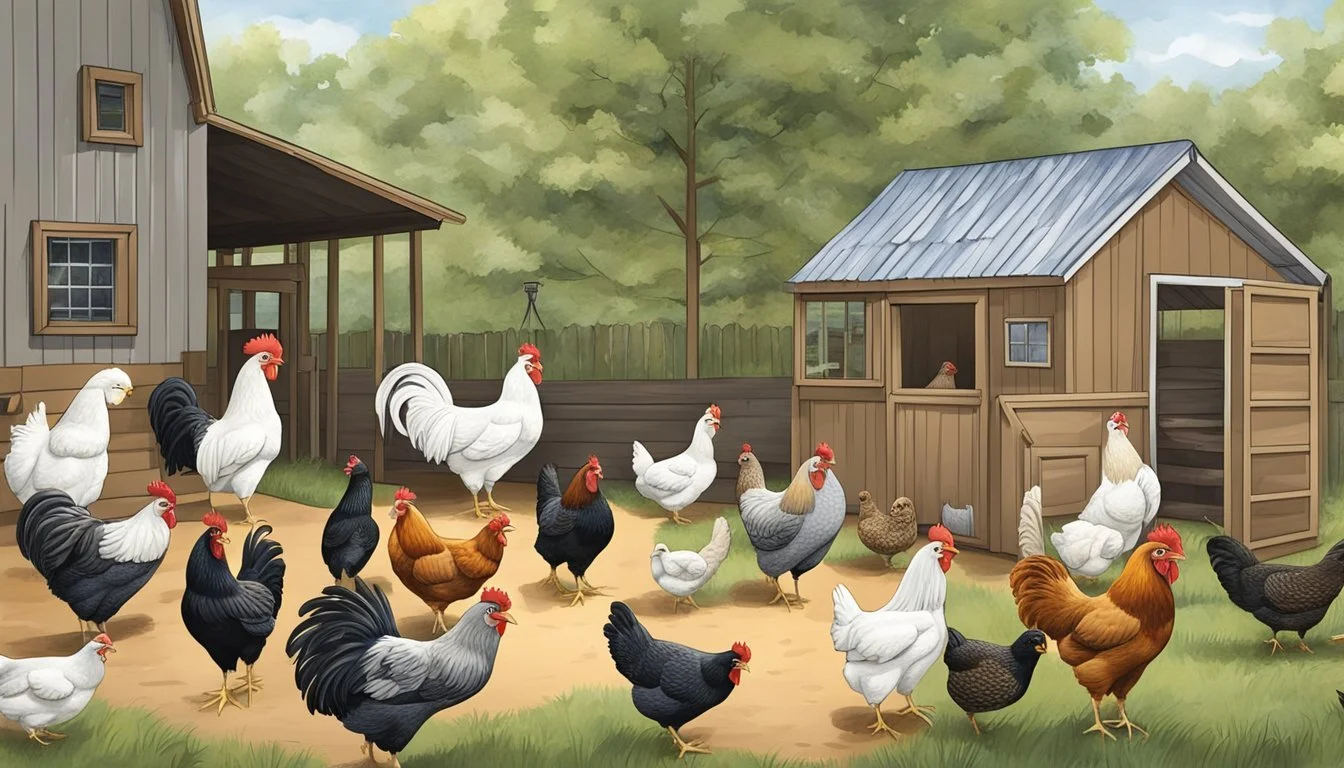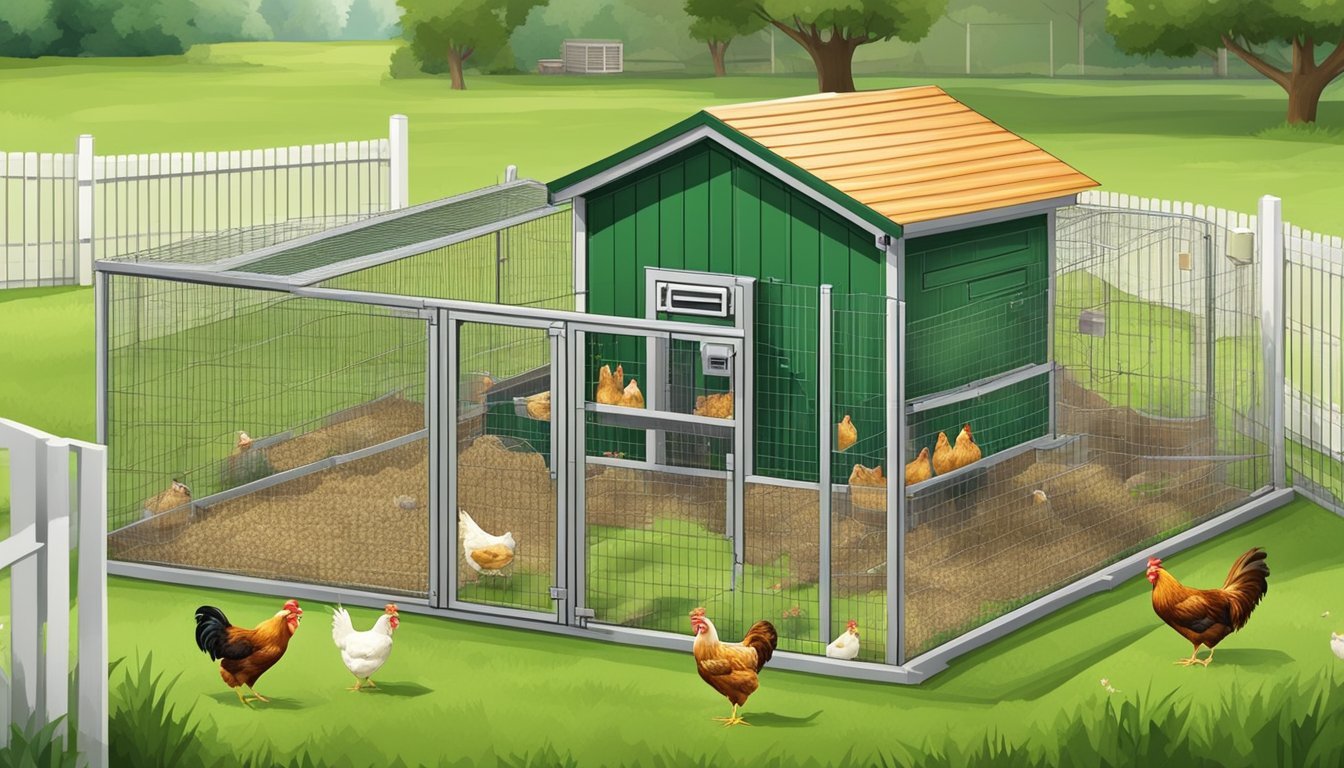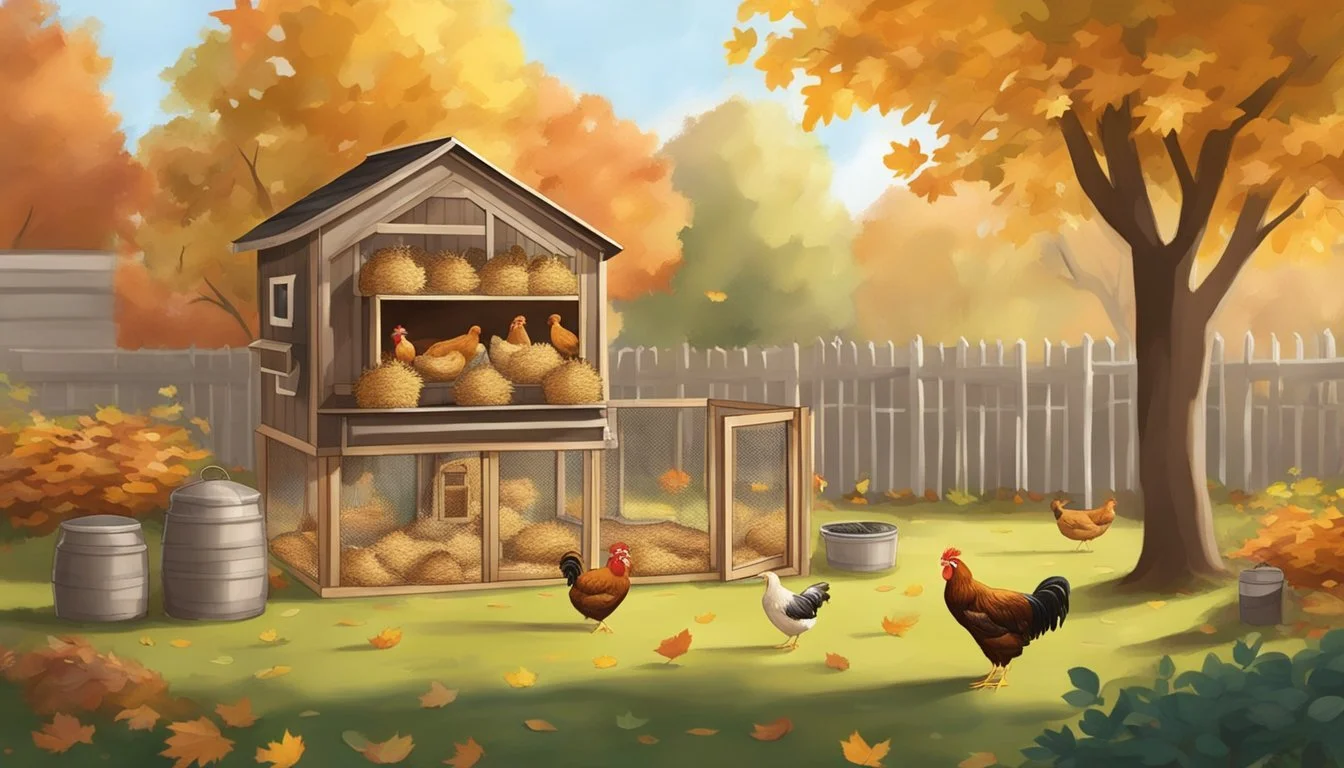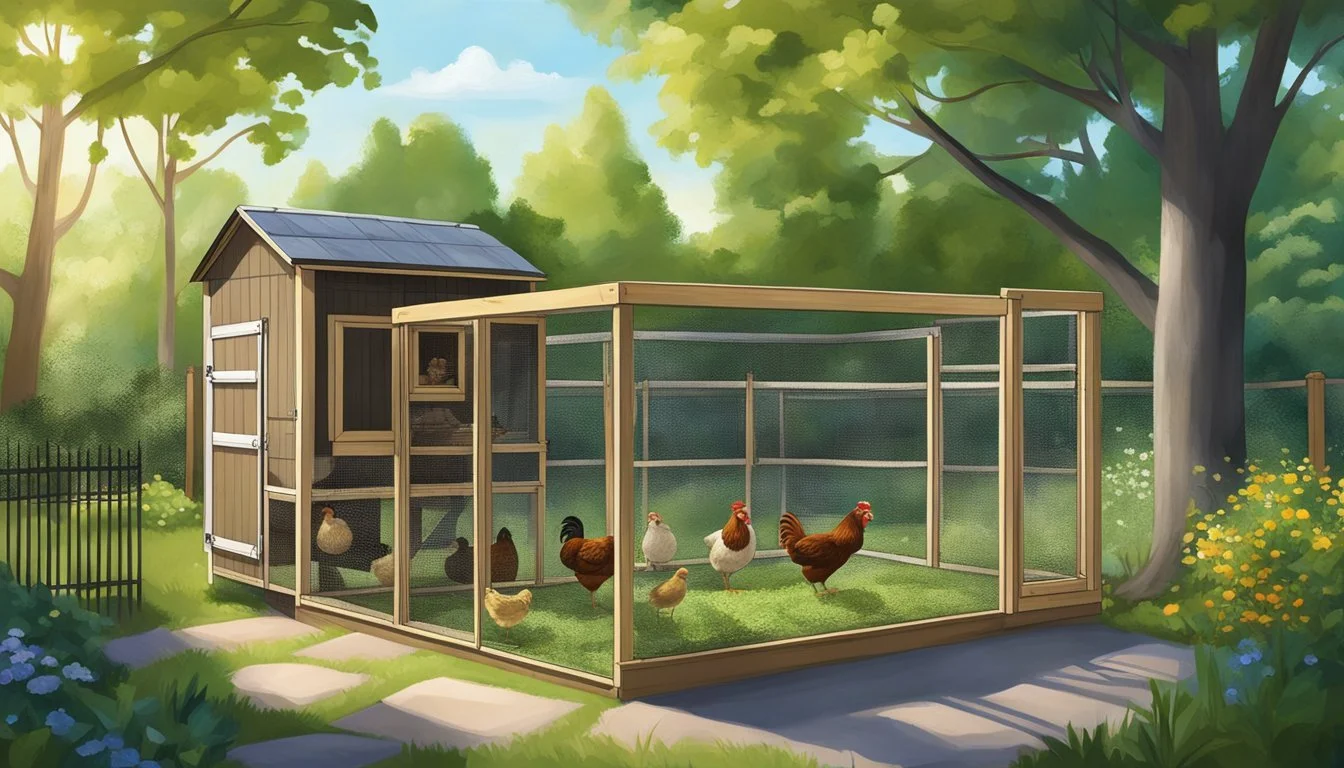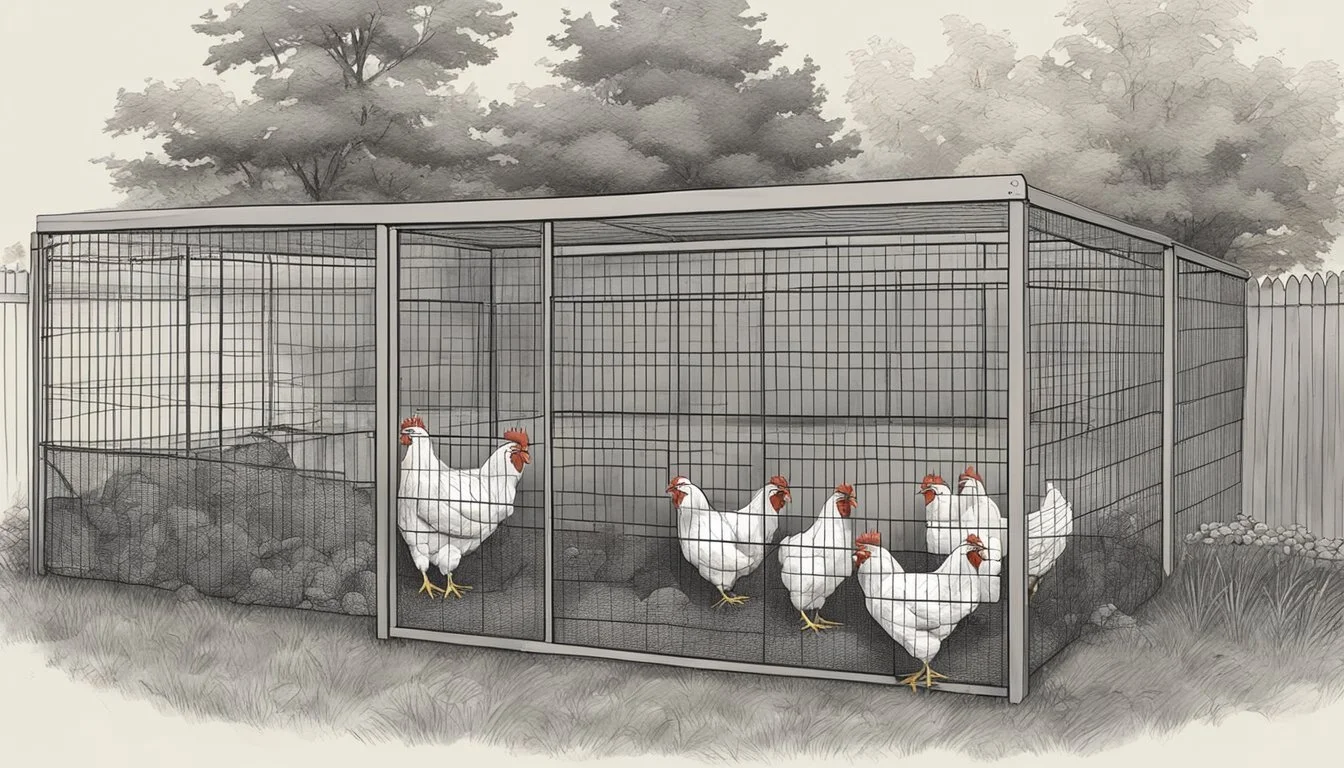Raising Backyard Chickens in Duluth, MN
Essential Tips for Successful Flock Management
Raising backyard chickens has become a popular trend among residents in Duluth, Minnesota. This growing movement aligns with a larger interest in self-sustainability and organic living. Individuals who embark on this venture enjoy a range of benefits, including fresh eggs and the joy of nurturing animals. However, prospective chicken keepers in Duluth must navigate a series of regulations designed to maintain harmony in residential areas while ensuring the welfare of the chickens.
The city of Duluth stipulates that residents must own a single-family home to qualify for raising chickens, and an annual license is required for this practice. The chicken coop must be positioned at least five feet away from the rear property line and three feet from any side property lines. By adhering to these guidelines, chicken enthusiasts can join the ranks of urban poultry farmers, contributing to a community ethos of local food production and environmental stewardship.
Prospective chicken owners should be aware that keeping poultry is not just about the benefits; it requires a commitment of time, effort, and resources. It is essential to understand the basics of chicken care, disease prevention, and flock management to ensure the health and productivity of the birds. Despite the challenges, many Duluth residents find that the advantages of raising backyard chickens, such as the provision of fresh eggs and the pleasure derived from animal companionship, are well worth the investment.
Understanding Local Backyard Chicken Laws
Before venturing into raising backyard chickens in Duluth, Minnesota, being aware of local regulations and annual licensing requirements is crucial for compliance and the successful management of your flock.
Securing the Necessary Permits and Licenses
In Duluth, prospective chicken owners must secure an annual license before acquiring their flock. Permits are issued by the local city clerk and are a foundational step for any local resident interested in raising backyard chickens. Documentation verifying single-family home ownership is typically required during the application process, as chickens are only allowed at single-family residences within the city limits.
Duluth City Ordinances and Minnesota State Regulations
The city of Duluth's municipal code stipulates that chicken coops should be placed at least 5 feet from the rear property line and 3 feet from the side property line, to minimize noise and other nuisances to neighbours. The local ordinances align with Minnesota state regulations to ensure the well-being of both the chickens and the community. Slaughter of chickens in a residential area is not addressed in the search results provided, and additional local resources should be consulted to clarify this aspect.
Renewing Annual Licenses and Understanding Penalties
Annual licenses for backyard chickens are valid from January 1 to December 31 of each year. Failing to renew this license can result in penalties, which may involve fines or other actions from the Animal Control Authority. For more information or assistance with the license application or renewal process, residents should contact the Duluth city clerk or the Animal Control Authority.
Last updated in April 2024.
Choosing the Right Chicken Breed
When raising backyard chickens in Duluth, Minnesota, the primary factors to consider are the region's cold climate and the breed's egg-laying efficiency. An appropriate choice can result in a robust flock and steady egg production.
Cold-Tolerant Breeds for Duluth Winters
Duluth's winters demand breeds adapted to cold weather to ensure the chickens remain healthy and productive.
Wyandotte: This breed is known for its dense feathering, which offers excellent cold resistance.
Rhode Island Red: An American breed that tolerates the cold well and is quite hardy.
Ameraucana: Besides being cold hardy, they are known for laying blue-shelled eggs.
Orpington: A heavy-set breed with thick feathering, perfect for insulation against the cold.
Egg-Laying Capabilities and Breed Temperament
In addition to weather resilience, egg production rates and breed temperament are crucial considerations.
Egg Production:
Breed Eggs Per Year Egg Colour Australorp Over 250 Brown Rhode Island Red Varies Brown Ameraucana Moderate Blue
Temperament:
Australorp: Known for being docile and easy to raise, making them excellent for families.
Rhode Island Reds: These chickens are generally friendly and active but can also be a bit more assertive within a flock.
Ameraucana: Typically social and good-natured with humans, they can integrate well into a multi-breed coop.
Selecting chicken breeds that can both weather the cold Minnesota climate and provide a steady supply of organic eggs is a key to successful backyard farming in Duluth.
Designing and Building a Chicken Coop
Constructing a chicken coop in Duluth, MN requires thoughtful planning to ensure the health and safety of the flock. Key considerations include accommodating local climate conditions, emphasizing security, and maintaining a clean environment for your chickens.
Coop Size, Location, and Security
When determining Coop Size, one should plan for about 2-3 square feet per chicken inside the coop and 8-10 square feet per chicken in the outdoor Run. Select a location with good drainage and sunlight. Orient the coop to face away from prevailing winds to enhance Ventilation and temperature control. Security measures must be robust to protect against predators; this includes sturdy locks and reinforced wire mesh.
Insulation and Protection from Cold Winters
In Duluth's cold climate, Insulation is vital. Walls and the roof should be insulated to retain heat. The interior should have a Roost raised off the ground where chickens can huddle for warmth. Installing a ridge vent provides essential Ventilation while minimizing Humidity buildup. A light bulb can serve as a heat source but it’s not a replacement for adequate insulation.
Walls: Use insulating materials suited for damp conditions.
Ventilation: Ensure airflow without drafts; place vents near the roof.
Roost: Raised platform for sleeping, away from drafts.
Sanitation and Disease Prevention Measures
Regular cleaning prevents Disease Prevention, such as Salmonella and Avian Influenza. The coop should be designed for easy access and cleaning, with removable floor panels and nesting boxes.
Sanitation: Clean and replace bedding regularly.
Flock Health: Watch for signs of illness, segregate sick birds.
Prevent Highly Pathogenic Avian Influenza with strict biosecurity measures.
Creating a secure, insulated, and sanitary chicken coop ensures the well-being of backyard chickens throughout Duluth’s challenging seasons.
Daily Care and Management of Backyard Chickens
Raising backyard chickens in Duluth, MN, requires perseverance and knowledge of their daily care. Proper nutrition, health management, and egg handling are pivotal for maintaining a healthy flock.
Nutrition: Feeding and Water Systems
Ensuring chickens have access to nutritious food and clean water is essential. Chickens require a balanced diet including a mix of proteins, carbohydrates, and minerals.
Starter Feed: Chicks from 0-8 weeks need a starter feed with 18-20% protein.
Grower Feed: Transition to 16-18% starter/grower feed from 8-14 weeks.
Layer Feed: At 15-18 weeks, switch to a 16% protein finisher to prepare hens for egg-laying.
Water systems must provide fresh, unfrozen water daily. Heated waterers prevent freezing during Duluth’s harsh winters.
Maintaining Flock Health and Wellbeing
A well-ventilated but draft-free coop ensures fresh air without exposure to harsh conditions, reducing the risk of respiratory diseases.
Ventilation: Properly designed ventilation systems maintain air quality.
Sanitation: Regular cleaning minimizes disease and nuisance risks.
Disease Prevention: Implementing biosecurity measures prevents the spread of diseases.
Monitoring the flock for signs of distress or illness allows for timely intervention to keep hens and roosters healthy.
Egg Collection and Handling Practices
Effective egg collection and handling ensure the safety and quality of fresh eggs.
Daily Collection: Collect eggs every day to minimize breakage and promote hygiene.
Cleanliness: Keep nest boxes clean to prevent eggs from getting soiled.
Storage: Store eggs at a consistent, cool temperature to maintain freshness.
Recording egg production rates can serve as an indicator of the flock's overall health and wellbeing.
Preparation for Changing Seasons in Duluth
In Duluth, MN, backyard chicken keepers must adapt their care practices to the city's distinct seasonal changes. Ensuring your flock's well-being requires attention to their environment, particularly as temperatures shift dramatically through the year.
Transitioning Chickens into Spring
As winter thaws into spring, chicken keepers in Duluth should prioritize reintroducing their flocks to the changing outdoor conditions. Temperature fluctuations can be gradual, but chickens are adept at acclimating if given time. Boosting their diet with nutrient-rich food and water is critical during this period to strengthen their health after the colder months.
To-Do List for Spring Transition:
Monitor Temperature: Keep an eye on the coop's temperature to ensure it stays above freezing.
Egg Production Check: Expect an increase in egg production as daylight hours extend.
Gradual Access to Outdoors: Gradually increase their time outside to adjust to the fresh spring weather.
Adjust feeding routines to provide additional nutrients for laying hens.
Incorporate early composted material from winter as fertilizer in garden areas where chickens can forage.
Winterizing Your Coop and Flock Care
Winter in Duluth brings frigid temperatures and high humidity, making it essential for chicken keepers to winterize the coop for the survival and comfort of their flock. Proper insulation and ventilation in the coop help prevent moisture buildup, which can lead to frostbite and other cold-related ailments.
Winter Care Checklist:
Insulate Coop: Enhance the coop's insulation while ensuring proper ventilation to reduce humidity.
Water Systems: Prevent water from freezing with heated water dispensers or by frequently changing the water.
Feed Adjustments: Increase caloric intake by providing a richer diet to support body heat generation.
Composted Bedding: Utilize composted bedding to generate natural warmth within the coop.
By systematically addressing each factor, keepers can provide a secure and productive environment year-round for their backyard chickens in Duluth.
Understanding the Social Dynamics of Your Flock
When one is raising backyard chickens, especially in Duluth, MN, understanding the flock's social dynamics is crucial for their well-being. Chickens are inherently social creatures, and they interact within a structured hierarchy known as the pecking order.
The Pecking Order:
Top of the hierarchy: Typically, dominant chickens who have priority access to resources.
Middle ranks: Birds with less dominance but are settled in their position.
Bottom: Submissive chickens, often targeted by more assertive birds.
Recognizing the signs of the pecking order helps poultry keepers maintain harmony. An acquaintance with each chicken’s personality and status can prevent undue stress and injuries within the flock.
Communication: Chickens communicate effectively through body language and vocalizations. They have various calls and postures indicating everything from contentment to distress, enabling attentive owners to address any issues promptly.
Flock Integration: New chickens introduced to a backyard setup need careful integration to minimize upheaval. The existing flock will test and establish new pecking order positions. Owners should monitor these interactions to ensure they do not escalate to harmful levels.
Environmental Enhancement: Providing a nurturing environment with ample space, perches, and hiding spots can decrease tension among backyard chickens in Duluth, MN. Such measures increase opportunities for lower-ranking members to escape unwanted attention and reduce potential conflict.
By recognizing and respecting the complex social dynamics of their flock, owners can foster a peaceful and productive backyard chicken community.
Additional Considerations and Resources
When diving into the world of backyard chickens in Duluth, MN, it's essential to weigh additional benefits like fertilizer production and to tap into local community resources. These considerations help in maximizing the advantages and maintaining a healthy flock.
Benefits of Raising Chickens for Fertilizer Production
Backyard chickens provide more than eggs and entertainment; they also produce a significant amount of waste that can be composted into rich fertilizer. The composted chicken manure is high in nitrogen—a crucial nutrient for plant growth.
Nutrient Content: A great source of nitrogen, phosphorus, and potassium.
Composting: Necessary to convert fresh droppings into safe, usable fertilizer.
Garden Use: Enhances soil health and boosts productivity in home gardens.
Local Community Support and Educational Resources
Duluth residents have access to a range of local resources for learning and support.
Extension Services: The University of Minnesota Extension provides in-depth information on small-scale poultry keeping and problem-solving.
Local Ordinances: Duluth has specific laws around chicken keeping, such as coop placement and license requirements, which can be found on the city's website or at ChickenLaws.com.
Community Groups: Local groups often offer workshops and share knowledge. Here, one can find more information and connect with experienced chicken owners in the Minneapolis-Duluth area.
Engaging with these local avenues not only bolsters one's understanding but also strengthens community ties and support networks.
Coping with Potential Loss and Predators
In Duluth, MN, the joy of raising backyard chickens comes with the responsibility of protecting them from predators. Loss of chickens can be an emotional and financial setback for owners. However, with preventative measures, one can significantly reduce the risk of predation.
Securing the Coop:
Chickens require a secure coop. It's crucial to:
Eliminate Gaps: Seal entry points, including gaps around windows, vents, and the foundation. Small openings can be big enough for predators.
Fortify the Roof: Use wire mesh or a sturdy material to prevent predators from entering from above.
Creating Barriers:
Coop Skirt: A hardware cloth skirt around the perimeter can deter diggers like foxes.
Electrified Netting: This offers additional protection and can be effective against foxes and coyotes.
Providing Safe Havens:
Escape Routes: Incorporate tall perches and shelters for free-ranging chickens to escape aerial predators.
Guardians: Employing livestock guardian dogs can be a proactive step in keeping predators at bay.
Adapting to Loss:
Experiencing loss is a possibility despite precautions. Serenity can be found in preparing for the worst while hoping for the best. With each loss, there's an opportunity to reassess and improve the chicken's environment to prevent future occurrences. The resilience of both the chickens and their owners, against such odds, contributes to the collective knowledge and shared experience of the backyard chicken community in Duluth.
Conclusion
Raising backyard chickens in Duluth has become increasingly viable and popular. This sustainable practice serves not only as an economic choice, but also as a way to engage with local food production. Residents in Duluth can enjoy the rewards of poultry husbandry by adhering to specific guidelines set by the city. They must own a single-family dwelling and follow zoning rules concerning the placement of chicken coops.
Below are a few critical bullet points for Duluth residents considering embarking on this journey:
Chickens provide a source of local, organic eggs.
Up to five hens are allowed per household, conforming to City of Duluth's regulations.
Coops must be at least 5 feet from the rear and 3 feet from the side property lines.
An annual license is required to legally raise chickens.
Build coops from scrap lumber helps in cost reduction.
Despite the initial setup and maintenance costs, residents find raising chickens rewarding. It offers an invaluable educational experience and a connection to the cycles of nature, while potentially mitigating some grocery expenses, as long as one builds the coop cost-effectively.
As local regulations evolve, it is essential for individuals to stay informed on current laws to ensure their backyard chicken operations remain compliant. With proper care and adherence to regulations, raising chickens in Duluth is not only feasible but also contributes to a more self-reliant and environmentally-conscious lifestyle.

